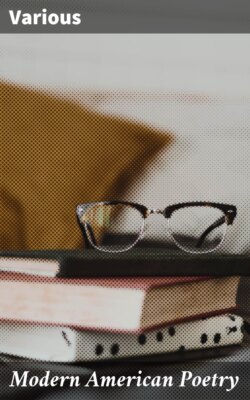Читать книгу Modern American Poetry - Various - Страница 3
На сайте Литреса книга снята с продажи.
PREFACE
The Civil War—and After
ОглавлениеTable of Contents
The end of the Civil War marked the end of a literary epoch. The New England group, containing (if Poe could be added) all the great names of the ante-bellum period, began to disintegrate. The poets had outsung themselves; it was a time of surrender and swansongs. Unable to respond to the new forces of political nationalism and industrial reconstruction, the Brahmins (that famous group of intellectuals who dominated literary America) withdrew into their libraries. Poets like Longfellow, Bryant, Taylor, turned their eyes away from the native scene, rhapsodized endlessly about Europe, echoed the “parlor poetry” of England, or left creative writing altogether and occupied themselves with translations. “They had been borne into an era in which they had no part,” writes Fred Lewis Pattee (A History of American Literature Since 1870), “and they contented themselves with reëchoings of the old music.” … Within a single period of six years, from 1867 to 1872, there appeared Longfellow’s Divina Commedia, C. E. Norton’s Vita Nuova, T. W. Parson’s Inferno, William Cullen Bryant’s Iliad and Odyssey, and Bayard Taylor’s Faust.
Suddenly the break came. America developed a national consciousness; the West discovered itself, and the East discovered the West. Grudgingly at first, the aristocratic leaders made way for a new expression; crude, jangling, vigorously democratic. The old order was changing with a vengeance. All the preceding writers—poets like Emerson, Thoreau, Lowell, Longfellow, Holmes—were not only products of the New England colleges, but typically “Boston gentlemen of the early Renaissance.” To them the new men must have seemed like a regiment recruited from the ranks of vulgarity. Walt Whitman, Mark Twain, Bret Harte, John Hay, Joaquin Miller, Joel Chandler Harris, James Whitcomb Riley—these were men who had graduated from the farm, the frontier, the mine, the pilot-house, the printer’s shop! For a while, the movement seemed of little consequence; the impact of Whitman and the Westerners was averted. The poets of the transition, with a deliberate art, ignored the surge of a spontaneous national expression. They were even successful in holding it back. But it was gathering force.
